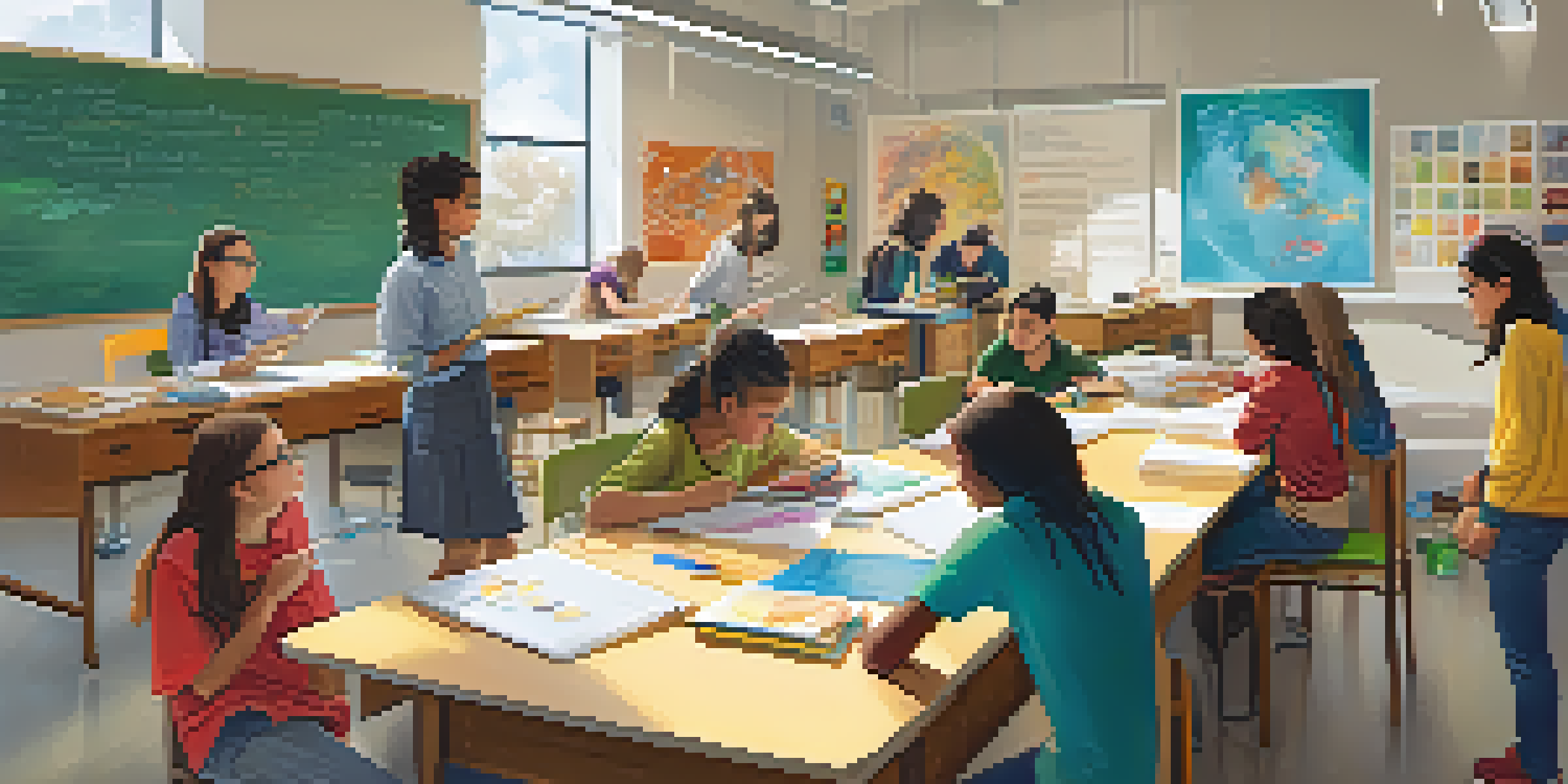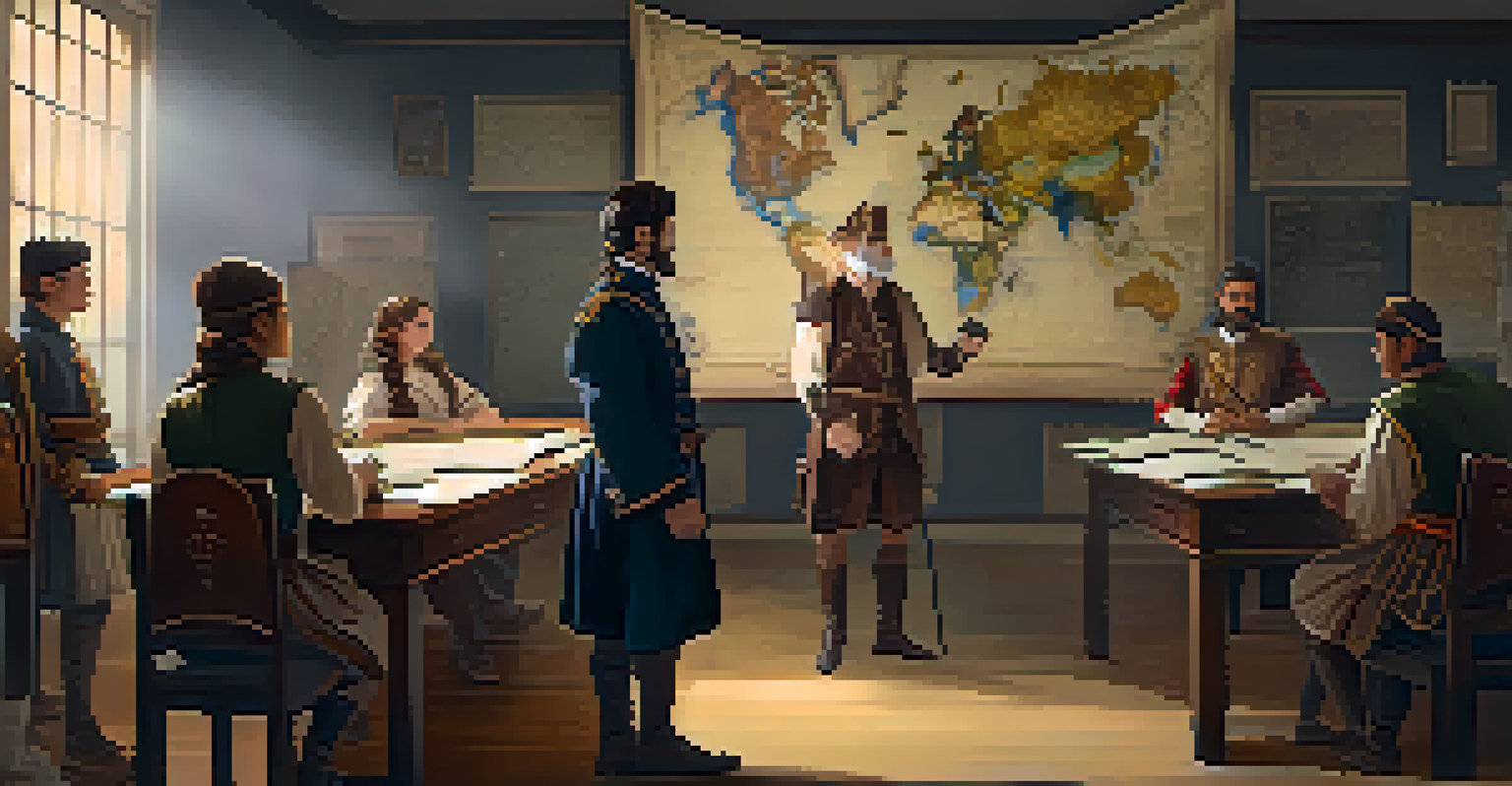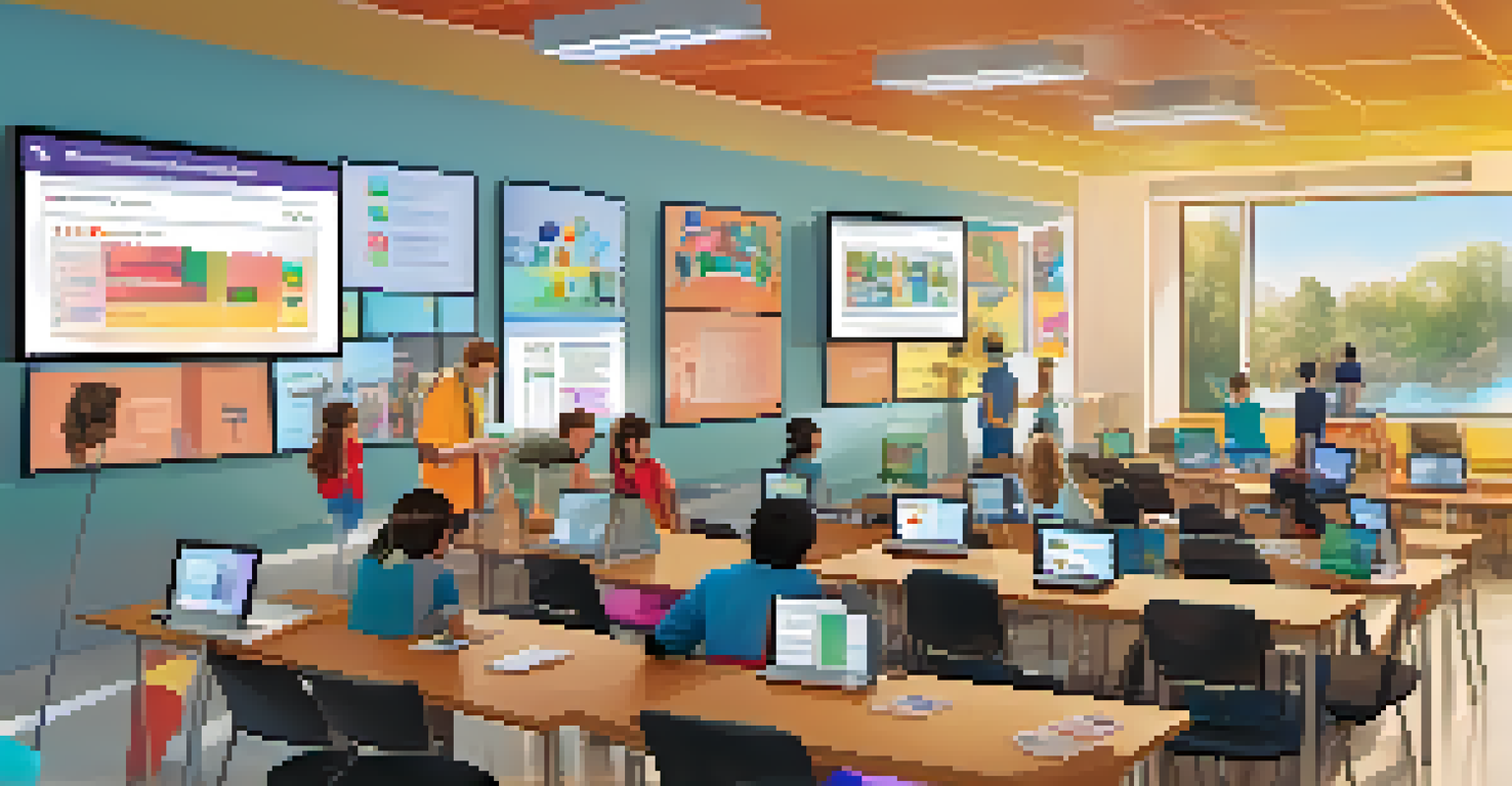The Role of Game Mechanics in Crafting Effective Lessons

Understanding Game Mechanics and Their Importance
Game mechanics are the rules and systems that guide player actions within a game. They create the framework that helps learners navigate through educational content. By understanding these mechanics, educators can craft lessons that are not only engaging but also effective.
Games give you a reason to keep going. They’re inherently motivating.
In the context of education, game mechanics can transform traditional teaching methods. They encourage active participation, foster motivation, and create a sense of achievement. When students feel like they are part of a game, they are more likely to invest their time and effort in the learning process.
For example, incorporating elements like points, levels, and challenges can mimic a game-like experience. This approach can make even the most mundane subjects feel exciting and relevant to students. Ultimately, recognizing the role of game mechanics is crucial for modern educators.
Enhancing Engagement Through Competition and Challenges
One powerful aspect of game mechanics is competition. When students compete, whether against themselves or their peers, it can drive them to perform better. This competitive spirit can lead to increased engagement and a deeper investment in the lesson material.

Challenges, another key game mechanic, push learners to overcome obstacles. By facing these challenges, students develop problem-solving skills and resilience. This not only makes learning more enjoyable but also reinforces the material in a memorable way.
Engagement Through Game Mechanics
Incorporating game mechanics in education boosts student engagement and motivation by transforming lessons into interactive experiences.
For instance, a math lesson could include timed challenges where students race against the clock to solve problems. This not only adds an element of fun but also encourages them to practice more. By using competition and challenges, educators can create a dynamic classroom atmosphere.
Fostering Collaboration with Team-Based Mechanics
Collaboration is another significant component of game mechanics that can be utilized in lessons. By facilitating group activities, teachers can cultivate teamwork skills among students. This collaborative approach mirrors many popular games that require players to work together to achieve objectives.
Learning is a treasure that will follow its owner everywhere.
When students collaborate, they learn from each other and share diverse perspectives. This social interaction can lead to a richer understanding of the content. Additionally, team-based activities can help build a sense of community within the classroom.
For example, a science project could be designed as a quest where teams must work together to solve a mystery. This not only encourages collaborative learning but also makes the educational experience more enjoyable. By promoting collaboration, educators can enhance the overall learning experience.
Using Feedback Loops to Drive Improvement
Feedback is crucial in both games and education. Game mechanics often include immediate feedback, allowing players to learn from their mistakes. Integrating similar feedback loops in lessons can help students understand their progress and areas needing improvement.
When students receive timely feedback, they can adjust their strategies and approaches to learning. This iterative process fosters a growth mindset, encouraging them to view challenges as opportunities for development. Moreover, continuous feedback helps maintain motivation and engagement.
Collaboration Enhances Learning
Utilizing team-based mechanics fosters collaboration among students, enriching their understanding and building community in the classroom.
For instance, online quizzes that provide instant results can guide students on what they need to focus on next. This approach not only boosts their confidence but also makes learning more personalized. By incorporating feedback loops, educators can create a more effective learning environment.
Creating Immersive Learning Experiences
Immersion is a key aspect of game mechanics that can be replicated in educational settings. When students feel immersed in a lesson, they are more likely to retain information and engage with the material. Storytelling, role-playing, and simulations can create these immersive experiences.
For instance, a history lesson could be transformed into a role-playing game where students assume the identities of historical figures. This not only makes the lesson more engaging but also helps students connect emotionally with the content. The more immersed they feel, the deeper their understanding will be.
By crafting lessons that prioritize immersion, educators can captivate their students’ attention. This approach not only enhances learning outcomes but also makes the educational journey more enjoyable. Immersion can be a game-changer in lesson design.
Encouraging Exploration and Creativity
Game mechanics often promote exploration and creativity, allowing players to experiment within the game world. In the classroom, fostering this same spirit can lead to innovative thinking and deeper learning. Encouraging students to explore concepts can make lessons more dynamic and engaging.
When students are given the freedom to explore, they are likely to discover new interests and talents. This exploration can lead to a greater investment in their education. Moreover, creativity in learning can result in unique projects and presentations that reflect individual student voices.
Innovative Assessment Methods
Game-based assessments provide a comprehensive evaluation of student skills while reducing test anxiety and making learning more enjoyable.
For example, a project-based lesson could allow students to choose their own topics and presentation styles. This flexibility not only caters to different learning styles but also encourages students to take ownership of their learning. By promoting exploration and creativity, educators can inspire their students.
Assessing Learning Outcomes Through Game-Based Assessment
Game mechanics can also play a significant role in assessing learning outcomes. Traditional assessments often fail to capture the nuances of a student's understanding. By incorporating game-based assessments, educators can evaluate skills in a more comprehensive manner.
For instance, assessments that involve simulations or interactive challenges can provide insights into a student's problem-solving abilities. These assessments can reveal how well students can apply their knowledge in real-world scenarios. This approach not only makes assessment more enjoyable but also more informative.

Moreover, game-based assessments can reduce test anxiety, making students feel more at ease during evaluations. This can lead to a more accurate representation of their abilities. By adopting these innovative assessment methods, educators can better understand their students' learning journeys.